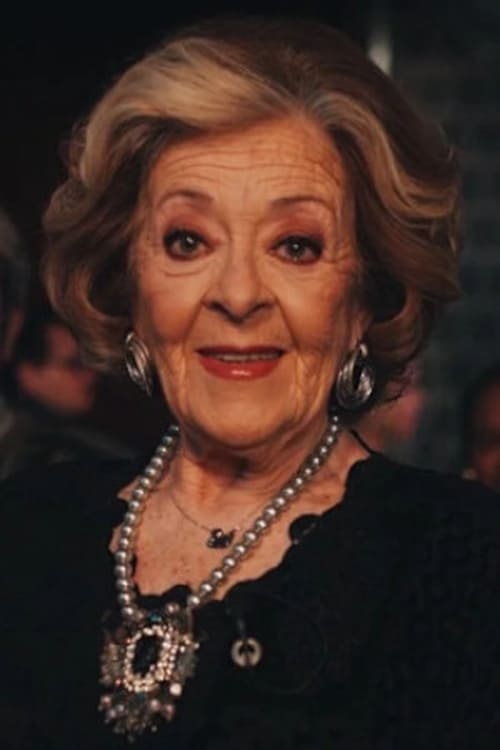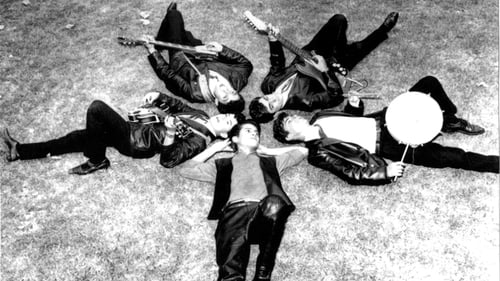
Simone de Oliveira
Nascimento : 1938-02-11, Lisbon, Portugal
História
Simone de Macedo e Oliveira, better known as Simone de Oliveira is a Portuguese singer and actress. Simone was born and raised in Lisbon. Her Portuguese mother had black African roots in São Tomé and Príncipe (then a Portuguese territory), and her father was Belgian. She started singing in high school. She is a breast cancer survivor and had the sickness twice. She started her career at the end of the 1950s. With "Sol de inverno" she represented Portugal at the Eurovision Song Contest 1965. She became fairly famous in 1969 with the song "Desfolhada Portuguesa", with lyrics by José Carlos Ary dos Santos and music by Nuno Nazareth Fernandes. This song was a great success in Portugal, having innovative lyrics during the time of the dictatorship of António de Oliveira Salazar. It represented Portugal at the Eurovision Song Contest 1969 in Madrid. Despite her popularity at home, it was not successful at the Eurovision, getting only 4 votes. Eleven years later she was again selected by RTP to represent her country in the ninth edition of the OTI Festival (The Latin American counterpart of the Eurovision Song Contest). She performed the song "A tua espera" which got the 14th place with 9 points. She was in several plays, more than 10 movies and 23 TeleNovelas.

Self
Espetáculo de encerramento da carreira artística de Simone de Oliveira, gravado no Coliseu dos Recreios em março de 2022. Uma celebração dos seus 65 anos de cantigas.

Avó
O filme é uma reflexão muito atual e quase serena sobre o caminho comum das sociedades europeias de hoje, sobre o isolamento, a perplexidade diante das dificuldades que surgem, sobre a vida nas cidades e dentro das famílias. É uma tensão crescente que nunca explode.

Mendes Oliveira's wife
Três amigos, Jaime, Miguel e Henrique, todos os anos organizam um almoço em memória de Marcelino, um velho amigo morto num interrogatório da PIDE. Jaime não se esqueceu do nome e da face do homem responsável pela sua morte. Até que um dia, durante a observação de um julgamento no qual sua filha, Catarina é advogada de defesa, Jaime vê aquilo que parecia improvável. O cliente da sua filha é o ex-inspetor da PIDE. Confuso e revoltado, Jaime decide fazer uma loucura, raptar o homem que nunca esqueceu e torturá-los como vingança em memória do seu grande amigo Marcelino.

Arminda Badalo
In the future, Joseph enters a bookshop searching for an Italian writer. While he searches for the name "Firenze" in the database, he recounts the story of a woman he had met 30 years ago. Lisbon, 2007: Joseph is a tormented American seminarian, a member of Opus Dei, who has come to Lisbon to help organize an exhibition of the Franciscan Order in Lisbon's Cathedral. The exhibition brings to Portugal a legendary mirror, "The Mirror of St. Francis of Assisi", that was said to have allowed St Francis to see the next morning. On the day of his departure, Joseph, at the train station, literally bumps into Giulia, a beautiful and irreverent Italian writer with whom he establishes an immediate chemistry. Giulia tells Joseph she came to Lisbon to try to find a mysterious Portuguese singer who her father had a relationship with in Lisbon before he left to fight for the Portuguese in their colonial war.

Clara
The shady side of an Italian textile trade in northern Germany is the subject of this slow-paced but atmospheric drama featuring Alberto Sordi as Totonno, a low-level, petty criminal anxious to move up a somewhat crooked ladder. Rising to the rank of the "dons" -- Don Raffaele (Carmine Ippolito) or Don Gennaro (Pasquale Cenammo) -- is not an easy task, as Totonno is about to find out. In the meantime, Paula (Belinda Lee) provides a romantic distraction, and another would-be entrepreneur opts for the straight and narrow. This uneven feature offers some colorful performances but the sum is less convincing than its parts.

Paula
Mário Gonçalves, professor do liceu ameaçado pela morte, devida a cancro, passa os últimos tempos de vida na aldeia onde nasceu, em plena Serra da Estrela. Aí, dá expressão ao seu talento de pintor, na íntima decoração duma capela abandonada. essa é, também, a hora crepuscular das memórias insubmissas: o amor e a precariedade, as opções e a contingência, a perene insatisfação...

a singer
Numa família modesta, o pai, Leonel, é um pianista nostálgico das melodias do passado, enquanto o filho, Tony, chefia Os Gatos Pretos, um conjunto de "twist". A filha, Cilinha - que namora Raul, um rapaz de situação desafogada - é uma jovem muito atinada. Raul acaba por proporcionar a Leonel, a Tony e a Os Gatos Pretos, uma oportunidade para demonstrarem os seus dotes musicais, criando o "dancing" da reconciliação: Lisboa Antiga e Moderna... [Fonte: José de Matos-Cruz, O Cais do Olhar, p. 124] Uma versão em castelhano com o mesmo argumento do filme, intitulada Los gatos negros foi realizada por José Luis Monter, e partilhou os mesmos produtores e elenco.




